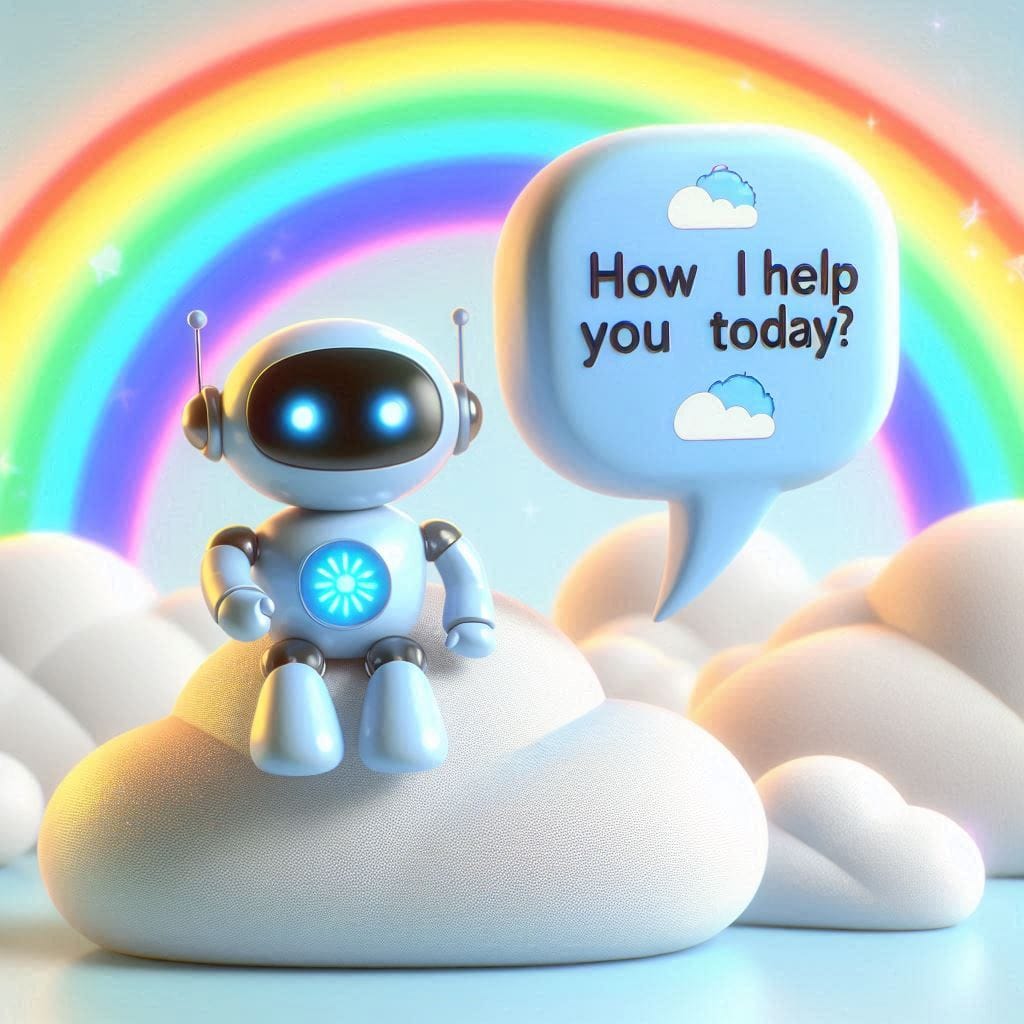Ask AI Chat: The Ultimate Guide to AI Chatbots and Question-Answering in 2024-2025
Table of Contents
- Introduction
- Understanding AI Chatbots
- Top AI Chatbots to Ask Anything
- How to Effectively Use AI Chatbots
- Ask AI vs. ChatGPT: A Comparison
- Free AI Chatbot Options
- AI Chatbots for Specific Tasks
- The Future of AI Question-Answering
- Ethical Considerations
- FAQs
- Conclusion
Introduction
In the rapidly evolving world of artificial intelligence, AI chatbots have become powerful tools for instant information retrieval and problem-solving. The ability to “ask AI” anything has revolutionized how we seek answers, create content, and interact with technology. This comprehensive guide explores the latest trends in AI chatbots and question-answering systems, focusing on user-friendly platforms that allow you to chat and ask AI about virtually any topic.
As we delve into 2024, the landscape of AI chatbots has expanded significantly, offering innovative solutions for both personal and professional use. Whether you’re looking to ask AI chatbot for quick answers or exploring more advanced AI-powered tools, this article will equip you with the most up-to-date information on how to leverage these technologies effectively.
Understanding AI Chatbots
AI chatbots are computer programs designed to simulate human conversation through text or voice interactions. They use advanced natural language processing (NLP) and machine learning algorithms to understand user queries and generate relevant responses. Key components of modern AI chatbots include:
- Natural Language Understanding (NLU): Interpreting user intent and context
- Knowledge Base: A vast repository of information to draw answers from
- Language Generation: Creating coherent and contextually appropriate responses
- Learning Capabilities: Improving responses over time based on interactions
These elements work together to create AI chatbots that can engage in increasingly sophisticated and helpful conversations.
Top AI Chatbots to Ask Anything
Here’s a list of some of the best AI chatbots available for asking questions and getting instant answers:
-
ChatGPT (https://chat.openai.com)
- Features: Wide-ranging knowledge, context understanding, creative responses
- Best for: General queries, writing assistance, problem-solving
-
Google Bard (https://bard.google.com)
- Features: Up-to-date information, integration with Google services
- Best for: Current events, research, factual queries
-
Anthropic Claude (https://www.anthropic.com)
- Features: Ethical AI, detailed explanations, coding assistance
- Best for: In-depth discussions, technical queries, ethical considerations
-
Perplexity AI (https://www.perplexity.ai)
- Features: Real-time web search integration, citation of sources
- Best for: Academic research, fact-checking, exploring topics in depth
-
You.com (https://you.com)
- Features: AI-powered search engine with chatbot capabilities
- Best for: Web searches, quick answers, multi-source information
These platforms offer a range of features to cater to different types of questions and user needs.
How to Effectively Use AI Chatbots
To get the most out of AI chatbots when asking questions, follow these best practices:
- Be Specific: Clearly state your question or problem for more accurate responses.
- Provide Context: Give relevant background information to help the AI understand your query better.
- Use Natural Language: Phrase your questions as you would to a human for better results.
- Break Down Complex Queries: For multi-part questions, consider asking them separately.
- Verify Important Information: Cross-check critical facts with reliable sources.
- Iterate and Refine: If you don’t get a satisfactory answer, try rephrasing your question.
- Explore Follow-up Questions: Use the AI’s response as a springboard for deeper discussions.

Ask AI vs. ChatGPT: A Comparison
While ChatGPT is one of the most well-known AI chatbots, other platforms like Ask AI offer unique features. Here’s a comparison:
Feature
Ask AI
ChatGPT
Knowledge Base
Regularly updated
Fixed cutoff date
Specialization
Varies by platform
General-purpose
User Interface
Often more intuitive
Simple chat interface
Integration
May offer app integration
Web-based, API available
Customization
Some platforms allow personalization
Limited user customization
The choice between Ask AI platforms and ChatGPT depends on your specific needs and preferences.
Free AI Chatbot Options
For those wondering “Is Ask AI free?”, there are several free options available:
- ChatGPT (Free Tier): Offers basic functionality without cost
- Google Bard: Currently free to use
- Hugging Face (https://huggingface.co): Provides access to various open-source models
- Replika (https://replika.ai): Offers a free AI companion with basic features
- Chai (https://www.chai-research.com): Provides free access to multiple AI characters
While free options may have limitations, they’re excellent for casual use and exploration of AI capabilities.
AI Chatbots for Specific Tasks
Some AI chatbots specialize in particular areas or tasks:
-
Content Creation:
- Jasper AI (https://www.jasper.ai): Focused on marketing and copywriting
- Copy.ai (https://www.copy.ai): Specializes in generating marketing copy
-
Programming Assistance:
- GitHub Copilot (https://github.com/features/copilot): AI-powered coding assistant
- Replit AI (https://replit.com): Integrated AI coding help in an online IDE
-
Language Learning:
- Duolingo AI (https://www.duolingo.com): Conversational practice in multiple languages
-
Mental Health Support:
- Woebot (https://woebothealth.com): AI-driven mental health chatbot
These specialized chatbots can provide more tailored assistance for specific needs.
The Future of AI Question-Answering
As we look towards the future, several trends are shaping the development of AI chatbots:
- Multimodal AI: Integration of text, voice, and image understanding
- Enhanced Personalization: AI that adapts to individual user preferences and learning styles
- Improved Contextual Understanding: Better grasp of nuance and implied meaning
- Augmented Reality Integration: AI assistants in AR environments
- Emotional Intelligence: AI that can recognize and respond to human emotions
- Blockchain and Decentralized AI: More secure and transparent AI interactions
Ethical Considerations
When using AI chatbots, it’s important to keep these ethical considerations in mind:
- Privacy: Be cautious about sharing sensitive personal information
- Bias Awareness: Recognize that AI can reflect biases present in training data
- Over-reliance: Use AI as a tool, not a replacement for critical thinking
- Transparency: Be clear when using AI-generated content in professional contexts
- Responsible Use: Avoid using AI for harmful or deceptive purposes

FAQs
What is the Ask AI app?
The Ask AI app typically refers to mobile applications that provide access to AI chatbots for asking questions and getting instant answers. Specific features vary by platform.
Is Ask AI free?
Many AI chatbot platforms offer free tiers or trials. However, advanced features or unlimited usage often require a subscription. Always check the pricing model of the specific platform you’re interested in.
How does Ask AI compare to ChatGPT?
Ask AI is a broader term that can encompass various AI chatbot platforms, while ChatGPT is a specific model developed by OpenAI. The comparison depends on which Ask AI platform you’re using.
Can I trust the answers from AI chatbots?
While AI chatbots are increasingly accurate, they can make mistakes. It’s always best to verify important information from reliable sources, especially for critical decisions.
Are there any risks to using AI chatbots?
Risks include potential privacy concerns, the possibility of receiving inaccurate information, and the risk of over-reliance on AI for decision-making. Use AI chatbots responsibly and critically.
Conclusion
AI chatbots and question-answering systems have revolutionized the way we access information and solve problems. From general-purpose platforms like ChatGPT to specialized tools for specific tasks, the ability to ask AI anything has become an invaluable resource for individuals and businesses alike.
As these technologies continue to evolve, we can expect even more sophisticated, personalized, and context-aware AI assistants. By understanding how to effectively use these tools, staying aware of their limitations, and considering the ethical implications, you can harness the power of AI to enhance your knowledge, productivity, and decision-making processes.
Whether you’re a student looking for study help, a professional seeking to streamline your workflow, or simply someone curious about the world around you, exploring and experimenting with AI chatbots can open up new possibilities for learning and problem-solving.